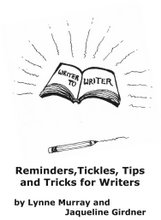Thursday, June 16, 2005
One woman's poison....many women's whimsy
June 14-15, 1975
Strong Poison, Dorothy L. Sayers
What a great book to read for the first time. I've since re-read it many, many times. Not only is this a Lord Peter Wimsey mystery, but it's also the one where he meets Harriet Vane. Many of us have been in love with Lord Peter since our first Dorothy L. Sayers reading experience of him. Harriet Vane, the crime writer on trial for poisoning her ex-lover in Strong Poison, is the perfect love interest for him. Partly because she initially refuses him! Most of us who adore Lord Peter do so because under his elaborately carefree witty persona, there is always a deep chord of how his experience in the World War I scarred him. Despite his witty ranting and his use of solving crimes as a kind of therapy for post-traumatic stress, he really is a noble-hearted, unaffectedly human character. What the whole "English nobility" aspect of his character means to English-born readers, I have no idea. It definitely added a certain glamour to his appeal. But the patient persistence with which he courts Harriet over the course of a few books shows the depth of his character and has provided a hopeless ideal for several generations of female readers--including me--and probably including his creator, I suspect). It's not that Peter Wimsy has all this noble birth stuff going for him (although that makes it possible for him to break a lot of rules in his detection of crimes). Rather it's the witty, loyal, ethical and gentle man of honor that Sayers has created, and that we dream of finding in an actual flesh and blood human of the male persuasion.
...and jumping 30 years forward to something completely different....
June 15-16, 2005
Shutter Island, Dennis Lehane
As a rule I have enjoyed Lehane's storytelling and gripping prose but the ending of this book really set my teeth on edge. I won't reveal any of the corkscrew twists in the last third of the book in case someone reading this wants to experience the ending "unspoiled." But I felt manipulated. Generally Lehane books are dark, but with an underlying affirmation and attention to small, comforting details that makes the darkness bearable. Once the mechanism of the end of this book started cranking, I began to lose interest in the characters to the point where their eventual fading out didn't bother me so much because I'd stopped believing in them. I have hopes that the next Lehane I pick up will be less thriller-ish and gimmicky. This time I just wanted to yell at him--"why do you think we read fiction? To lend meaning to life. To inject some understanding into it. I'm not saying you have to write about that. But if you don't--I don't have to read your stuff."
Strong Poison, Dorothy L. Sayers
What a great book to read for the first time. I've since re-read it many, many times. Not only is this a Lord Peter Wimsey mystery, but it's also the one where he meets Harriet Vane. Many of us have been in love with Lord Peter since our first Dorothy L. Sayers reading experience of him. Harriet Vane, the crime writer on trial for poisoning her ex-lover in Strong Poison, is the perfect love interest for him. Partly because she initially refuses him! Most of us who adore Lord Peter do so because under his elaborately carefree witty persona, there is always a deep chord of how his experience in the World War I scarred him. Despite his witty ranting and his use of solving crimes as a kind of therapy for post-traumatic stress, he really is a noble-hearted, unaffectedly human character. What the whole "English nobility" aspect of his character means to English-born readers, I have no idea. It definitely added a certain glamour to his appeal. But the patient persistence with which he courts Harriet over the course of a few books shows the depth of his character and has provided a hopeless ideal for several generations of female readers--including me--and probably including his creator, I suspect). It's not that Peter Wimsy has all this noble birth stuff going for him (although that makes it possible for him to break a lot of rules in his detection of crimes). Rather it's the witty, loyal, ethical and gentle man of honor that Sayers has created, and that we dream of finding in an actual flesh and blood human of the male persuasion.
...and jumping 30 years forward to something completely different....
June 15-16, 2005
Shutter Island, Dennis Lehane
As a rule I have enjoyed Lehane's storytelling and gripping prose but the ending of this book really set my teeth on edge. I won't reveal any of the corkscrew twists in the last third of the book in case someone reading this wants to experience the ending "unspoiled." But I felt manipulated. Generally Lehane books are dark, but with an underlying affirmation and attention to small, comforting details that makes the darkness bearable. Once the mechanism of the end of this book started cranking, I began to lose interest in the characters to the point where their eventual fading out didn't bother me so much because I'd stopped believing in them. I have hopes that the next Lehane I pick up will be less thriller-ish and gimmicky. This time I just wanted to yell at him--"why do you think we read fiction? To lend meaning to life. To inject some understanding into it. I'm not saying you have to write about that. But if you don't--I don't have to read your stuff."
Subscribe to:
Post Comments (Atom)




No comments:
Post a Comment